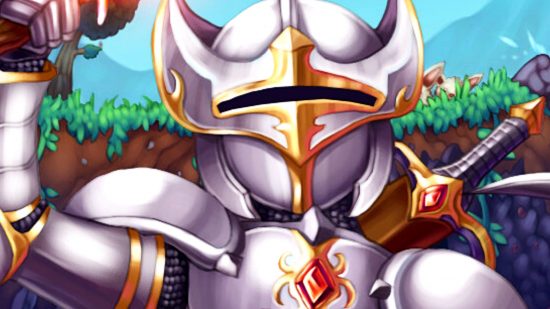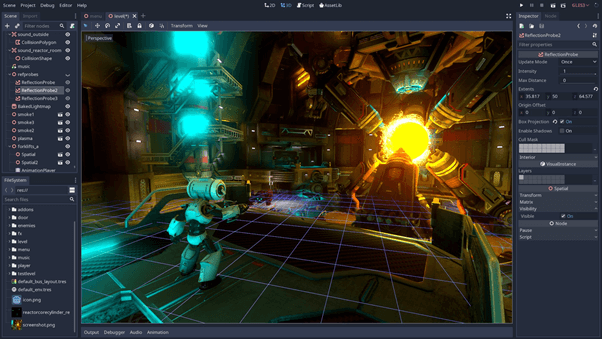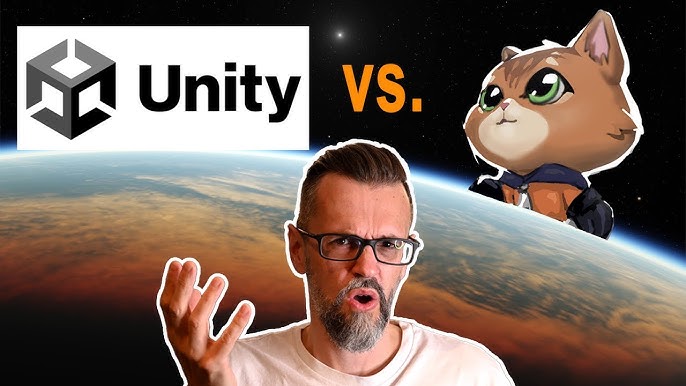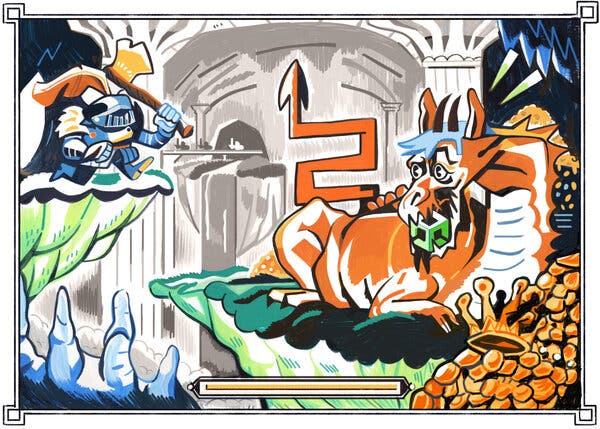The Unity Uprising: How Runtime Fees Shook the PC Gaming World (and What Comes Next) We've seen a lot in the PC gaming world, haven't we?

We've seen a lot in the PC gaming world, haven't we? From the pixelated dawn of Doom to the sprawling open worlds of today, it's a landscape of constant innovation and, let's face it, occasional corporate missteps. But rarely have we witnessed a debacle as impactful – and potentially transformative – as Unity's proposed runtime fee changes. The uproar was immediate, visceral, and frankly, justified. This wasn't just about money; it was about trust, stability, and the very future of indie game development. Let's dive into the wreckage and see what it means for PC gamers, especially those of us who love our sims, strategies, and indie RPGs.
The Earthquake: Understanding the Proposed (and Partially Reversed) Fees
For those who somehow missed the initial blast, here's a quick recap. Unity announced a new "runtime fee" that would charge developers per installation of their games, even for games already released. The structure was complex, with different tiers based on revenue and install counts, but the core problem was simple: it was unpredictable and potentially devastating, especially for smaller studios and those with games on subscription services or included in bundles. After massive backlash, Unity walked back some of the most egregious aspects, like charging for installs stemming from piracy or charity. However, the damage was done. The trust was broken.
PC Games in the Crosshairs: Sims, Strategies, and Indie RPGs
Why are PC gamers so concerned? Because the types of games we love are often heavily reliant on the creativity and dedication of smaller teams using engines like Unity. Think about it:
Cities: Skylines: This city-building behemoth thrives on its active modding community. Imagine the chilling effect of developers and modders having to factor in runtime fees every time someone downloads a new asset. This game could have been severely impacted if the new fees were implemented as initially announced.
Kerbal Space Program: Another title built on player creativity and mod support. The open-ended nature of KSP makes it a perfect candidate for endless experimentation and expansion, but the runtime fees would have placed a heavy burden on both the developers and the modders who contribute so much to the game's longevity.
Escape from Tarkov: Although its status as an indie game can be debated, it's clear that games built with Unity will also be affected. It also demonstrates how a game with a high install count could be financially crippled under the new fee structure.
These games, and countless others in the simulation, strategy, and indie RPG genres, faced an uncertain future. The possibility of increased costs, reduced content updates, or even complete abandonment loomed large.
The Indie Dev Perspective: An Interview with Sarah
To get a better sense of the impact, let's hear from someone on the front lines. Imagine I'm interviewing Sarah, a solo indie developer working on a simulation game using Unity:
XenGamer: Sarah, how did you initially react to the news about Unity's runtime fee changes?
Sarah: Panic. Pure, unadulterated panic. I'm a solo dev. I don't have a massive marketing budget or a team of accountants to figure out the complexities of their new fee structure.
XenGamer: What specific aspects of the proposed changes concerned you the most?
Sarah: The unpredictability. I couldn't reliably project my costs. What if my game took off and went viral? I could have been looking at crippling fees for a game I released years ago. It was insane.
XenGamer: Have you considered switching to Godot or another engine? If so, what are the biggest hurdles you face in making that switch?
Sarah: I'm actively prototyping in Godot right now. The biggest hurdle is time. I've already invested hundreds of hours in my Unity project. Switching means rewriting a lot of code and relearning a new workflow. It's daunting, but the alternative – staying with Unity after this betrayal – feels even worse.
XenGamer: What message would you like to send to Unity and to the wider PC gaming community about this situation?
Sarah: To Unity: You've damaged your relationship with the people who built your success. You need to earn back our trust, and that will take more than just walking back some of the worst changes. To the community: Support indie devs! Buy our games, leave reviews, and spread the word. We're the heart and soul of PC gaming, and we need your help to survive.

The Ethical Quandary: Trust, Transparency, and Sustainability
This whole situation raises some serious ethical questions. Can we, as developers and gamers, truly rely on proprietary engines that can change their terms on a whim? The rug pull felt especially egregious because Unity has long been a champion of indie developers. This incident exposed a fragility in the ecosystem, highlighting the need for greater transparency and more sustainable models. The long-term consequences of relying on proprietary systems are now front and center.
Enter Godot: The Open-Source Hope
Amidst the chaos, a beacon of hope has emerged: Godot Engine. This open-source game engine has been gaining traction for years, but the Unity controversy has accelerated its rise to prominence.

Godot's open-source nature means it's free to use, free to modify, and free from the whims of a single corporation. It's driven by a passionate community of developers who are constantly improving its features and creating tutorials. The node-based system is intuitive and powerful, and the engine supports both 2D and 3D game development.
Here are a few examples of successful projects built with Godot:
Cruelty Squad: A bizarre and darkly humorous tactical FPS known for its unique visual style and challenging gameplay.
Dome Keeper: A stylish resource management and roguelike game with captivating visuals.
Bounty of One: A fast-paced roguelite arena shooter with hordes of enemies.

These games demonstrate Godot's versatility and potential. The engine is constantly evolving, with new features and improvements being added all the time. Godot Engine Official Website offers a ton of helpful information.
Supporting the Developers: What You Can Do
The Unity controversy has been a wake-up call. But amidst the uncertainty, there's also an opportunity to support the developers who are building the games we love. Here's how you can help:
Buy indie game bundles: Websites like Itch.io regularly host bundles featuring games from indie developers. These bundles are a great way to discover new games and support multiple developers at once.
Support crowdfunding campaigns: Many developers rely on platforms like Kickstarter and Patreon to fund their projects. Consider backing games from developers who have been impacted by the Unity controversy.
Spread the word about Godot: Encourage developers you follow to explore Godot Engine. The more developers who switch to open-source alternatives, the more resilient the PC gaming ecosystem will become.
Check out the Humble Bundle: Stand With Ukraine: This bundle features a wide variety of games, books, and software, and a portion of the proceeds goes to support humanitarian efforts in Ukraine. Many of the developers featured in the bundle are indie devs who could benefit from your support.
The Indie Bundle for Palestinian Aid: This is an Itch.io bundle which features more than 1,000 indie games, tabletop games, and assets, with 100% of the proceeds going to charities supporting Palestinians.
Resources:
- Godot Engine Official Website: https://godotengine.org/
- Godot Engine Documentation: https://docs.godotengine.org/en/stable/
- GDQuest Godot Tutorials: https://www.gdquest.com/tutorial/godot/
Suggest Godot to developers you follow and encourage them to check it out.

The Future of PC Gaming: A Fork in the Road
The Unity controversy has exposed a fault line in the PC gaming world. It's a reminder that we need to support developers who are committed to transparency, sustainability, and community. It’s more important than ever to think about the engines used to create games.

The path forward isn't clear, but one thing is certain: the PC gaming community is resilient and passionate. By supporting indie developers, embracing open-source alternatives, and demanding greater transparency from the companies we trust, we can build a more sustainable and equitable future for the games we love. This isn’t just about one engine; it's about the power of community and the importance of standing up for what's right.